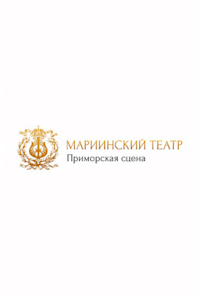Don Carlo, along with Aida and Shakespeare’s masterpieces Othello and Falstaff, is one of Giuseppe Verdi’s greatest creations. Upon request of the director of the Théâtre Impérial de l’Opéra (Paris Opera), the composer turned to the dramatic play of one of his favorite playwrights, Friedrich von Schiller. Librettists François-Joseph Méry and Camille du Locle developed the plot according to the canons of the French “grand opera”, with its traditional five-act structure and de rigueur ballet. This “living, powerful work made of gold, mud, bile and blood” (as Georges Bizet described it) created by Verdi could not but contradict the tastes of the Parisian public. In 1868, just a year and a half after the French premiere, Don Carlo was presented at the Bolshoi (Kamenny) Theatre in St. Petersburg, performed by the Italian troupe. However, Giuseppe Verdi remained unsatisfied. No longer bound by the canons of the Parisian stage, he cut the ballet at the beginning of Act III, and also shortened the meeting of Carlo and Élisabeth in the Forest of Fontainebleau, but added one of the most striking ensembles, the duet of Philip II and Rodrigo. The La Scala premiere of the new four-act version with the Italian verses by Antonio Ghislanzoni (the author of libretto to Aida) took place in 1884.
After the first production in St. Petersburg, Don Carlo was banned on the Russian stage for censorship reasons. Only in 1917, Feodor Chaliapin achieved the return of the opera to the Bolshoi Theatre in Moscow and acted as Philip II, becoming the unsurpassed performer of that role.
Don Carlo premiered at the Kirov Opera and Ballet Theatre (Mariinsky Theatre) in 1976, and its Milano edition was shown in 1992 and in 1999. In 2012, the premiere of the five-act Modena version, including the scene in Fontainebleau, took place.
The Primorsky Stage of the Mariinsky Theatre presents the historical performance by Stage Director Yuri Alexandrov, production design by Teimuraz Murvanidze. This magnificent production is framed with gloomy splendor: the massive scenery recreate the look and atmosphere of Escorial, the palace and monastery of Philip II, which is sometimes called the eighth wonder of the world, and sometimes, an architectural nightmare. The luxurious costumes by Tatiana Noginova seem to have come off the canvases of the great painters of the Spanish court.
The central idea of the performance follows Giuseppe Verdi’s plan: in the state ruled by Philip II, there is no place for human feelings and freedom, and the King himself is tragically lonely. “A grand opera of grand passions”, as Don Carlo is often correctly named, is a story of ruined love. The fate of every single main character is pathetic, and only the final duet of Carlo and Élisabeth brings some hope, as the lovers believe in their posthumous union in heaven. The genius Verdi conveys hypertrophied passions not so much in “portrait” arias, as in the dramatic ensembles, “clashes” of the characters.
The theatricality of the opera is determined by the extreme polarization of the images: Don Carlo and Philip II, Élisabeth and Eboli. A special position is held by Rodrigo, who is located, so to speak, at the intersection of these semantic coordinates: after all, he is both Carlo’s friend and the King’s confidant. A large role in the musical drama of the opera is played by crowd scenes and the orchestra. The expressive contours of vocal melodies are shaded by the voices of the musical instruments; the austere tinctures of church hymns can be traced in the chorales of the brass instruments. The emphasized contrasts of the juxtaposition of individual groups bestow declamatory pathos to the harmony of the orchestra.
Nadezhda Koulygina



